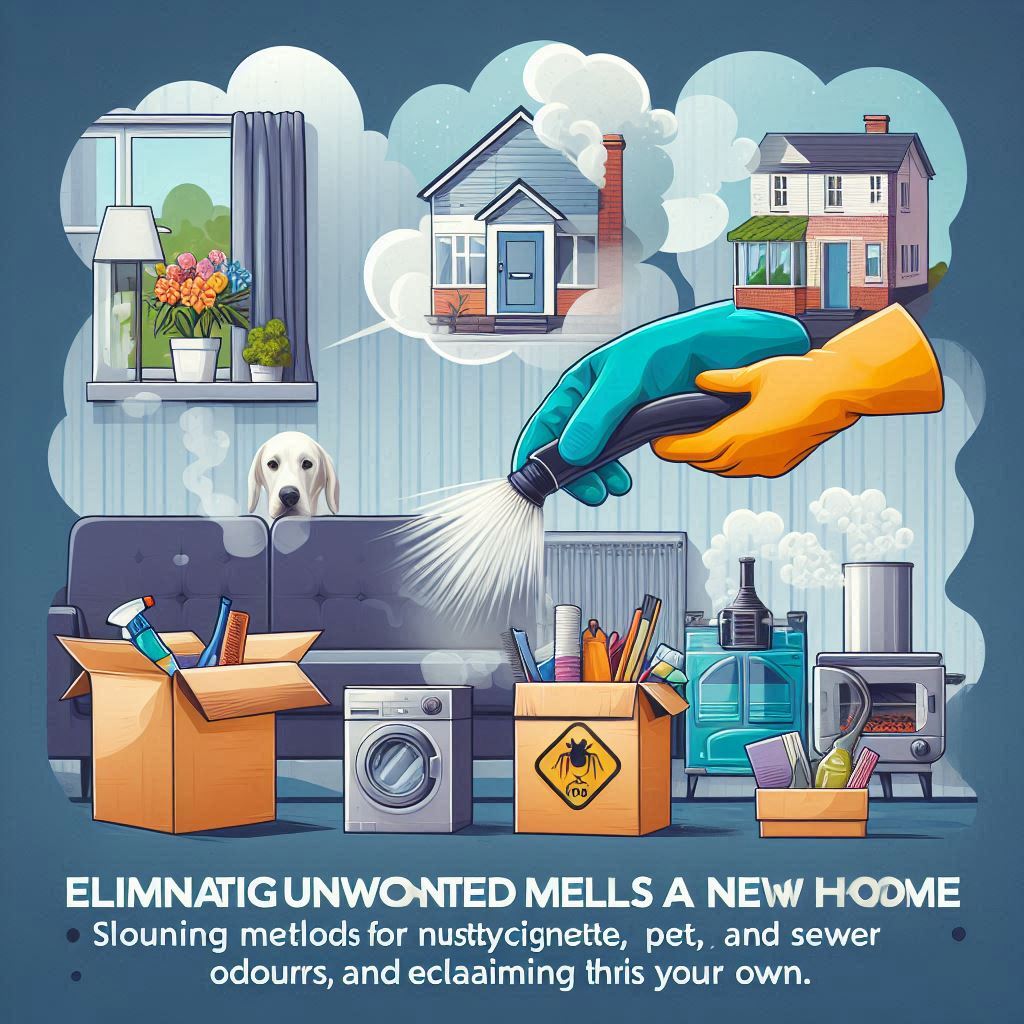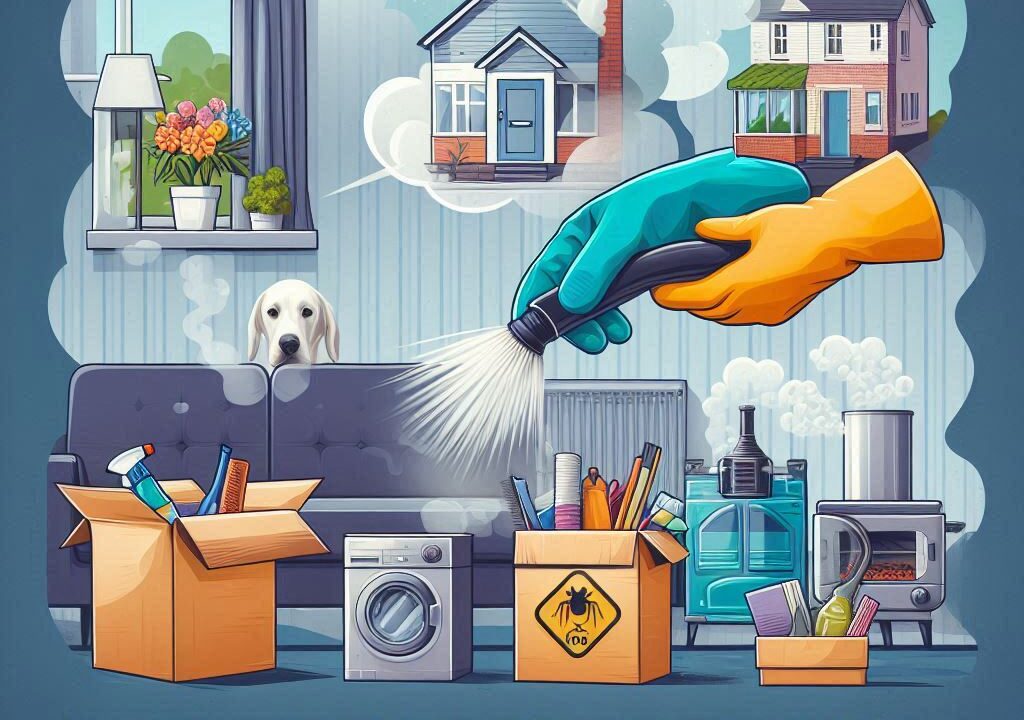Canadian Home Odour Removal Tips
Unpleasant smells in your Canadian home can be frustrating, especially if you’ve just moved in or are trying to make your space more comfortable. Lingering odours like mould, pet accidents, or cigarette smoke can affect air quality and make your home feel less welcoming. Fortunately, with the right cleaning techniques and preventive measures, you can eliminate these odours and enjoy a fresh, clean environment.
Here are some common household odours and how to eliminate them:

How to Tackle Musty or Mouldy Smells in Your Canadian Home
Musty or mouldy smells often arise from high humidity, water damage, or hidden mould. Begin by checking for leaks or damp spots, especially in areas like basements, bathrooms, and under sinks. Address any issues immediately to prevent further damage. Use a vinegar solution or a specialised mould cleaner to treat visible mould. A dehumidifier can also help reduce moisture in affected areas.
If the smell persists or the mould issue is widespread, it’s advisable to call in a professional. Mould can lead to health problems such as sneezing, coughing, breathing difficulties, and skin rashes. It’s best to let the experts handle large-scale mould issues.
Eliminating Cigarette Smoke Odour from Your Canadian Home
Cigarette smoke can cling to walls, ceilings, and carpets, leaving behind an unpleasant scent. To tackle this, clean the surfaces with a mixture of vinegar and water or a baking soda solution. Consider repainting the walls with an odour-sealing primer for further relief. Deep cleaning or replacing carpets and upholstery will also help eliminate the smell.
Pet Odours
Pet odours are often caused by dander, fur, saliva, and oils that get trapped in carpets and furniture. Start by deodorising with baking soda and vinegar, followed by steam-cleaning carpets and upholstery. Also, remember to clean or replace air filters to ensure your home’s air is fresh. If pet odours persist, a professional cleaning service may be necessary.
For urine odours, enzyme-based cleaners work effectively to break down urine proteins and neutralise the smell. If the stain has seeped deep into the carpet padding, you might need to replace that area to fully remove the odour.
Avoid using steam cleaners on urine stains, as the heat can set the stain and odour permanently. Also, steer clear of ammonia or vinegar, as their strong smells may cause your pet to mark the area again.
Sewer or Rotten Egg Odours
A sewer or rotten egg smell may indicate dry plumbing traps, blocked vents, or sulphur in your water supply. Running water in infrequently used sinks or showers can refill dry traps, while cleaning drains with a mixture of baking soda and vinegar, followed by hot water, may also help. If the smell continues, it’s a good idea to call a plumber.
In some instances, this smell could signal a gas leak. While natural gas is odourless, a sulphur-like chemical called mercaptan is added to help detect leaks. If you suspect a gas leak, evacuate the home immediately and avoid using any electrical switches or open flames. Once outside, contact your gas provider or emergency services.
From House to Home
If the cleaning methods mentioned above don’t fully eliminate the odours, consider seeking professional help. Removing lingering smells isn’t just about the scent—it’s about reclaiming the space and making it your own. Once you’ve successfully tackled the odours, your house will truly feel like home.

